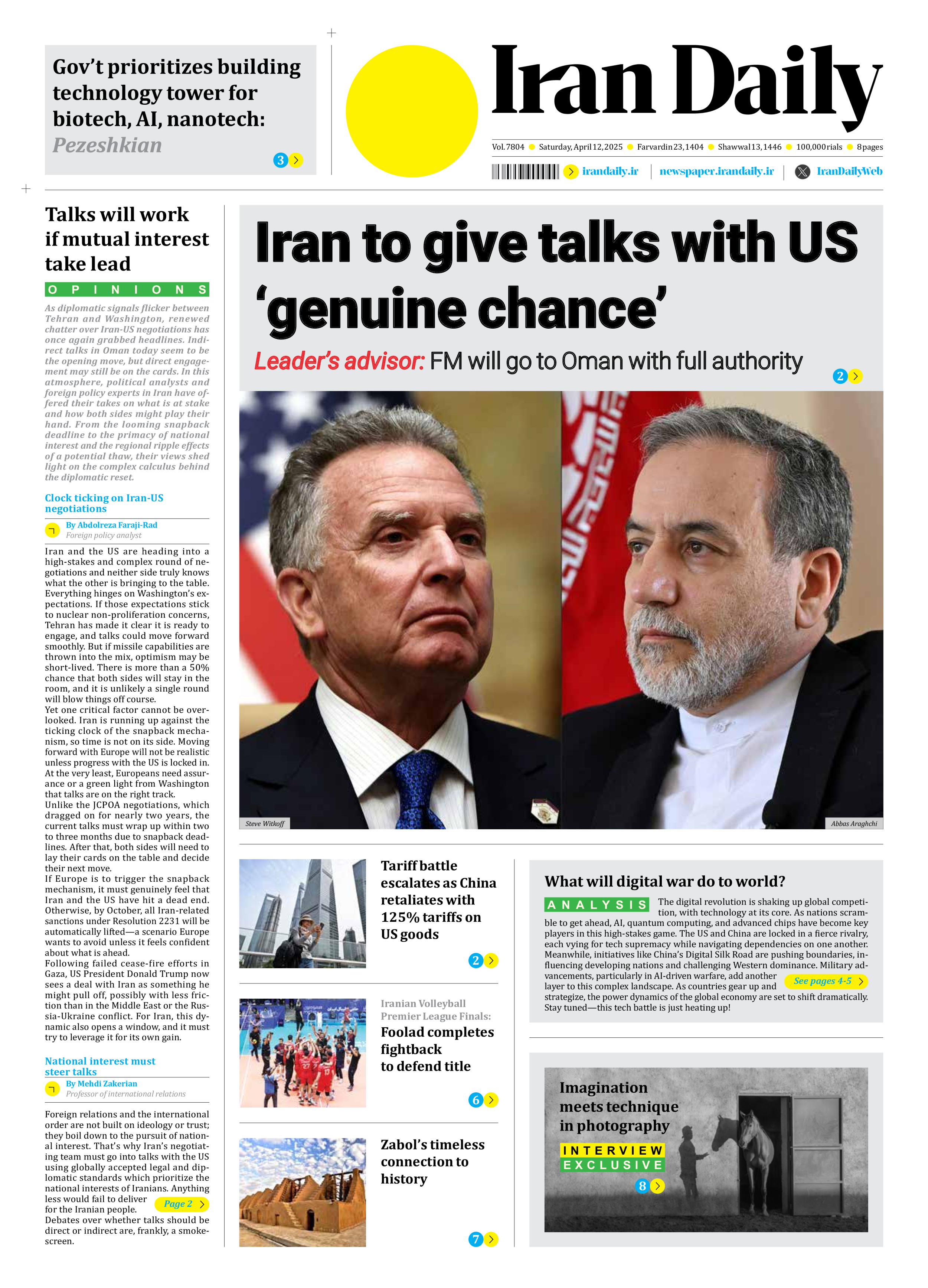
Talks will work if mutual interest take lead
As diplomatic signals flicker between Tehran and Washington, renewed chatter over Iran-US negotiations has once again grabbed headlines. Indirect talks in Oman today seem to be the opening move, but direct engagement may still be on the cards. In this atmosphere, political analysts and foreign policy experts in Iran have offered their takes on what is at stake and how both sides might play their hand. From the looming snapback deadline to the primacy of national interest and the regional ripple effects of a potential thaw, their views shed light on the complex calculus behind the diplomatic reset.
Clock ticking on Iran-US negotiations
By Abdolreza Faraji-Rad
Foreign policy analyst
Iran and the US are heading into a high-stakes and complex round of negotiations and neither side truly knows what the other is bringing to the table. Everything hinges on Washington’s expectations. If those expectations stick to nuclear non-proliferation concerns, Tehran has made it clear it is ready to engage, and talks could move forward smoothly. But if missile capabilities are thrown into the mix, optimism may be short-lived. There is more than a 50% chance that both sides will stay in the room, and it is unlikely a single round will blow things off course.
Yet one critical factor cannot be overlooked. Iran is running up against the ticking clock of the snapback mechanism, so time is not on its side. Moving forward with Europe will not be realistic unless progress with the US is locked in. At the very least, Europeans need assurance or a green light from Washington that talks are on the right track.
Unlike the JCPOA negotiations, which dragged on for nearly two years, the current talks must wrap up within two to three months due to snapback deadlines. After that, both sides will need to lay their cards on the table and decide their next move.
If Europe is to trigger the snapback mechanism, it must genuinely feel that Iran and the US have hit a dead end. Otherwise, by October, all Iran-related sanctions under Resolution 2231 will be automatically lifted—a scenario Europe wants to avoid unless it feels confident about what is ahead.
Following failed cease-fire efforts in Gaza, US President Donald Trump now sees a deal with Iran as something he might pull off, possibly with less friction than in the Middle East or the Russia-Ukraine conflict. For Iran, this dynamic also opens a window, and it must try to leverage it for its own gain.
National interest must
steer talks
By Mehdi Zakerian
Professor of international relations
Foreign relations and the international order are not built on ideology or trust; they boil down to the pursuit of national interest. That’s why Iran’s negotiating team must go into talks with the US using globally accepted legal and diplomatic standards which prioritize the national interests of Iranians. Anything less would fail to deliver for the Iranian people.
Debates over whether talks should be direct or indirect are, frankly, a smokescreen
Page 2







